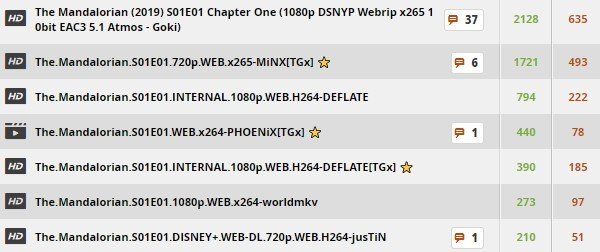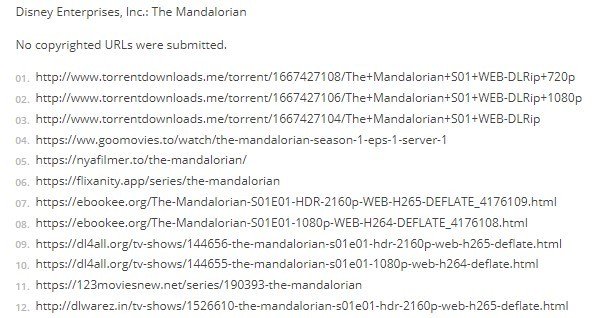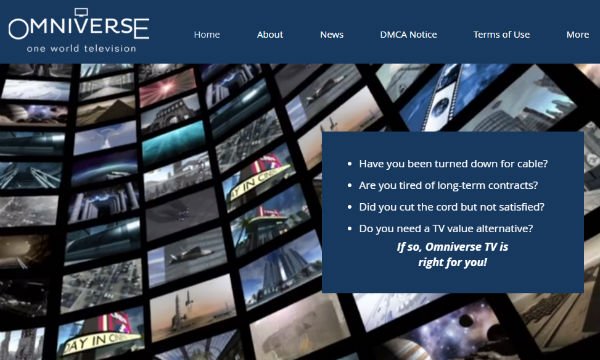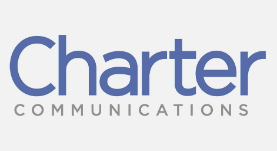Disney+ Launched and Pirates Love It, Especially Mandalorian
mercredi 13 novembre 2019 à 21:56
Two years ago, when Disney announced that it would launch its own streaming service, we mused that this would keep piracy relevant.
Yes, another paid streaming service would further fragment the legitimate market. This could motivate some to keep pirating, at least part-time.
More recently research has confirmed that this is indeed a warranted concern as people have limited budgets, but money isn’t the only problem.
When Disney confirmed that the initial rollout would be limited to the United States, Canada and the Netherlands, the piracy lure only became stronger. Star Wars fans in most parts of the world currently can’t watch the highly anticipated Mandalorian series, unless they pirate.
With this in mind, we kept a close eye on the official Disney+ launch this week. There was an enormous amount of media coverage which, undoubtedly, led to a lot of legitimate subscriptions. But, at the same time, pirate sites were buzzing too.
Shortly after Disney+ opened shop the first pirated releases started to spread. First through private communities and then over at public torrent sites, cyberlockers, and not-so-legal streaming platforms. After a few hours, pirated copies of the Mandalorian were everywhere.
This doesn’t really come as a surprise. Disney+ currently uses Widevine encryption, which is similar to what other streaming services use. Downloading or ‘ripping’ these videos doesn’t appear to be too hard.
And indeed, a quick glance at various pirate sites reveals that the first Mandalorian episode, which is exclusive to Disney+, is widely available in various formats.

Over the past two days, Mandalorian has already become the most pirated TV-show, with hundreds of thousands of downloads and streams, if not more. While it is far from becoming the next “Game of Thrones,” the potential is certainly there.
The fact that Disney+ isn’t available in many countries is similar to HBO’s situation when Game of Thrones first came out. This serves as a piracy incentive. After all, people who want to watch Mandalorian in the UK, Australia, and elsewhere, have few other options than to pirate.
The limited release of Disney+ may actually breed some new pirates. Even worse, there is a chance that many of these pirates may not go legal when the streaming service officially launches in their country.
For now, Disney’s anti-piracy efforts appear to be focused elsewhere though. The company has sent takedown requests for thousands of URLs that host or link to unauthorized copies of Mandalorian. This includes notices that were sent to Google, with requests to delist these pages.

As one of the largest entertainment companies in the world, these piracy concerns shouldn’t come as a surprise to Disney. The company probably weighed the pros and cons of its actions, including the limited geographical release, as well as entering an already fragmented streaming landscape.
In today’s online streaming business, piracy is a given. Disney probably believes that running its own streaming platform will ultimately bring in more money. Piracy or not.
They may very well be right, but it will happen at the expense of others. That may include some of Disney’s competitors, but also consumers who are not willing to pirate, and those who can’t afford another subscription.
Source: TF, for the latest info on copyright, file-sharing, torrent sites and more. We also have VPN reviews, discounts, offers and coupons.






